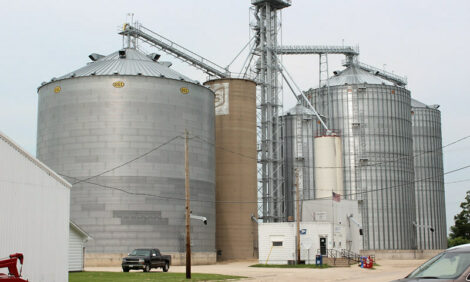



TB Moves to Neighboring Herd in Minnesota
US – The Minnesota Board of Animal Health today announced that cattle from a Roseau cattle operation tested positive for bovine Tuberculosis (TB).The newly detected beef herd was tested because of its proximity to an operation that tested positive for bovine TB in 2005. The Roseau County herd tested negative in 2005 and 2006 but during a third round of testing earlier this month, two animals tested suspect for bovine TB. Tissue samples were submitted to the National Veterinary Services Laboratory (NVSL) in Ames, Iowa, where a diagnosis of bovine TB was confirmed. Minnesota has now detected bovine TB in ten beef herds.
* "We will be contacting cattle producers to inform them of those requirements as soon as we have more information." |
|
Minnesota Board of Animal Health Executive Director and State Veterinarian Dr. Bill Hartmann
|
Minnesota Board of Animal Health Executive Director and State Veterinarian Dr. Bill Hartmann said if another infected herd is found Minnesota’s TB status may be downgraded. “Conversations are ongoing with the United States Department of Agriculture about Minnesota’s future TB status should we find one more herd,” said Hartmann. “It’s important that we prepare for all possibilities and unfortunately, one scenario would see the downgrading of our status from Modified Accredited Advanced to Modified Accredited, the middle rung in an international five-tier ranking system for cattle TB eradication.”
Federal interstate movement requirements would change with the status. Other state’s requirements could also change, so producers should plan to contact the animal health agency in the state they are shipping to for their import requirements. A list of these agencies is available on the Board website. Visit www.bah.state.mn.us and click on Export Regulations under the Quick Links drop down menu.
“All shipments of cattle moving across the border must meet both federal and state import requirements,” said Hartmann. “The state is currently reviewing these regulations to determine what the interstate movements would be if the status changes. We will be contacting cattle producers to inform them of those requirements as soon as we have more information.”
The Board is currently planning meetings throughout the state to present this information to cattle producers and allow producers to give their input directly to the state agencies involved. Details will be available soon. Exposure to bovine tuberculosis through the milk or meat supply is unlikely. Meat inspectors check all cattle entering the marketplace for signs of the disease before and after slaughter. Any animals showing signs are withheld from the food supply. In addition, adequate cooking destroys the bacteria.
Further Reading
|
|
- Find out more information on Bovine Tuberculosis (TB) by clicking here. |
|
|
- Go to our previous news item on this story by clicking here. |
TheCattleSite News Desk


